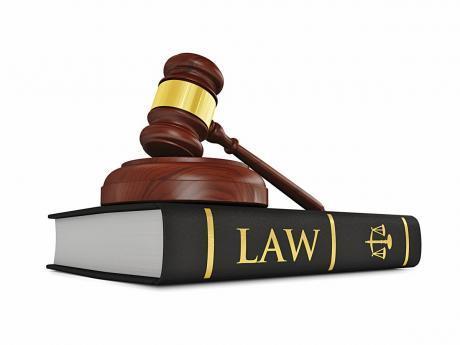Backlash over 'rights violation' forces Privy Council to withdraw Rule 23
The Privy Council (PC) has withdrawn a controversial proposed rule that many local lawyers believed would have violated Jamaicans' constitutional right to have certain appeals heard by the country's final court.
"In the light of the responses to our consultation on the proposed new rules, the board has decided not to proceed with proposed Rule 23," the UK-based court said in an update on its website Thursday.
The Judicial Committee of the Privy Council serves as final court for Jamaica and several other Commonwealth countries. Rule 23 was part of several changes the court proposed to change its operations. A document with the proposals was published on April 15 and the deadline for submissions May 17.
The Jamaican Bar Association (JAMBAR) said the PC advised it of the decision at a meeting on Wednesday. The lobby group for local lawyers wrote to it with concerns about the change on May 14.
"In response to concerns raised by JAMBAR, reflective of those also shared by other groups during the consultative process, Lord Hodge stated that Practice Direction 4.7.1-4.7.4 will be suspended, and Rule 23 will be withdrawn from the proposed revisions," the group said in a statement Thursday.
Rule 23 or the 'review of merits appeal' rule would enable a single judge to review an appeal from an appellant where permission has been granted by the court below or where the appellant has a right of appeal under the constitution of the jurisdiction from where the appeal comes.
The single member would have considered whether the appeal is “devoid of merit”. If the judge decided that the appear does not have merit, the appellant would have be invited to send written submissions, and a panel of three or more justices may decide to dismiss the appeal without an oral hearing.
But local legal practitioners raised serious concerns about the rule and its implications for the constitutional rights of Jamaicans to be heard by their final court.
JAMBAR President, Kevin Powell, council member Maurice Manning, KC, and Chairperson of JAMBAR's Constitutional and Human Rights Committee Carlene Larmond, KC, met virtually with the Privy Council's Deputy President Lord Hodge and Registrar Laura Angus.
"JAMBAR also secured the opportunity to provide comments on other proposed revisions to the Rules and to consult further with the Privy Council on the alternatives to Rule 23 which would be aimed at assisting litigants in identifying appeals that may be without merit to save time and costs without derogating from their right of appeal," it said.
Sections 110 (1) and (2) of the Jamaican Constitution allow appeals which are heard by the Privy Council to appellants “as of right” or after the Jamaican Court of Appeal has determined the appeal is of great general or public importance. Rule 23 would therefore have resulted in an additional barrier to the exercise of an appellant's constitutional right, JAMBAR said.
The local King's Counsel Group, representing some of the most senior lawyers in Jamaica, wrote to the Privy Council on the issue on May 17.
"The Constitution envisages that, because a matter is of great general importance, a litigant is entitled to have our apex court consider and rule on it. The proposed change would take away that entitlement, on a different basis,” noted the group's letter written by Michael Hylton. “In our view, that change would be contrary to the intent of our Constitution, and to the legitimate expectations of Jamaican litigants."
The Jamaican Government's position came through Justice Minister Delroy Chuck who said earlier in May that the move by the Privy Council was to ensure that only cases that have merit are adjudicated.
“What the Privy Council is doing is essentially what most courts of appeal do, and that is to have a single judge do an assessment. That single judge will see no merit and therefore indicate that to the applicant …" he told The Gleaner on May 8.
The changes come amid a constitutional reform process and renewed debates over whether the Privy Council should be retained as Jamaica's final court of appeal and move to the Caribbean Court of Justice.
Earlier this month, the Privy Council announced that the British government approved a proposal by Lord Reed for overseas judges to sit on the court.
Follow The Gleaner on X, formerly Twitter, and Instagram @JamaicaGleaner and on Facebook @GleanerJamaica. Send us a message on WhatsApp at 1-876-499-0169 or email us at onlinefeedback@gleanerjm.com or editors@gleanerjm.com

